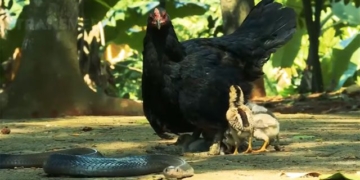Cats are revered in Islam and considered a quintessential pet. Admired for their cleanliness, cats are permitted in homes and mosques.
In the Arab world, the image, respect, and domestication of cats is a tradition that has existed for thousands of years.
Images of cats can be found throughout the surviving artworks of the ancient Near East.
Cats were mummified
The domestication of the first wild cats is believed to have occurred in the Fertile Crescent over 100,000 years ago. Wild cats hunted and consumed pests that threatened agricultural crops. Thus, cats became companions to farmers as they were domesticated.
Egypt is a clear example of a culture that not only respected cats but also held them in high esteem.
In the past, transporting cats from Egypt to other lands was strictly forbidden. Those who killed cats faced execution. Cats were even mummified.
The Greek historian Herodotus noted that the death of a cat was a deeply mourned event in Egypt. These facts indicate that cats held a high status in Egyptian society.

The goddess Bastet, depicted as a woman with a cat’s head, was one of the most revered deities in ancient Egyptian culture.

The goddess Bastet protected homes from evil spirits and diseases, particularly those affecting women and children.

Like many deities in Egyptian religion, Bastet played a role in guiding the souls of the deceased to the afterlife.
Abusing cats is a grave sin
The Islamic culture has, in many ways, adopted various aspects that reflect respect and admiration for cats.
The Prophet Muhammad – the founder of Islam – is said to have had a favorite cat named Muezza.
It is said that one morning, the Prophet needed to go pray, but Muezza was lying on his cloak. Muhammad gently cut the sleeve of his cloak so that Muezza could continue enjoying her nap.
The Prophet Muhammad is also believed to have emphasized the importance of cats in many hadiths (sayings) of his teachings.
|
According to this, Muslims are allowed to keep cats but must treat them well. Cats should be cherished, have ample space to roam, receive medical care if sick, have water and food of a standard equal to that of humans, and be free to move around. In Islam, abusing this animal is considered a serious sin. When a woman confined her cat and did not feed it, the Prophet Muhammad stated that “her punishment on the Day of Judgment will be torture and being cast into hell”. “There are deserving rewards in heaven for every act of kindness toward a living creature.” Prophet Muhammad |
These beliefs emphasize that those who are kind to cats (or any creature of Allah) are good Muslims.


Keeping cats seems to be a common practice among Arabs, both before, during, and after the time of Muhammad. One of Muhammad’s companions, named Abu Hurayrah, was known as “the father of kittens.”

Cats are considered clean pets by many Arabs and both Muslim and non-Muslim believers.
Abu Hurayrah always carried a cat in his bag, and this cat once saved Muhammad from a snake.
Clearly, reverence for cats is a distinctive part of Islamic culture compared to other religions.
In modern times, cats are seen as clean pets by many Arabs and both Muslim and non-Muslim believers.
To this day, cats continue to be companions to Muslims in homes or mosques. Many predominantly Muslim countries have a significant population of feral cats.





















































